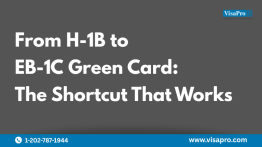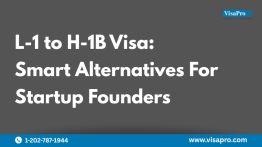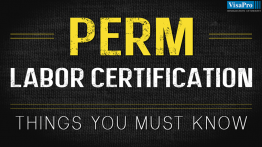Under the recently announced USCIS’ initiatives to promote startup enterprises and spur job creation, entrepreneurs may obtain an EB-2 Green Card as a member of a profession holding an Advanced Degree or as an individual of Exceptional Ability in the sciences, arts, or business, if they satisfy the existing requirements. USCIS has issued Frequently Asked Questions to clarify this issue. A few relevant extracts from the USCIS Q&As regarding entrepreneurs and EB-2 Category are as below:
1. Can an entrepreneur qualify as a member of a profession holding an advanced degree?
A. Yes. An entrepreneur can qualify if the:
- Entrepreneur will be working for a U.S. employer who files a petition on the entrepreneur’s behalf
- Entrepreneur is a member of the profession holding an advanced degree or foreign equivalent degree
- Underlying position requires, at a minimum, a professional holding an advanced degree or the equivalent
- Petitioning employer has received an individual labor certification from the Department of Labor; and
- Entrepreneur meets all the specific job requirements listed on the individual labor certification
2. Can an entrepreneur qualify as an individual of exceptional ability in the sciences, arts, or business?
A. Yes. An entrepreneur can qualify if the:
- Entrepreneur will be working for a U.S. employer who files a petition on the entrepreneur’s behalf
- Entrepreneur will be working in the sciences, arts, or business
- Entrepreneur has exceptional ability in the sciences, arts, or business
- Entrepreneur will substantially benefit prospectively the national economy, cultural or educational interests, or welfare of the United States
- Petitioning employer has received an individual labor certification from the Department of Labor; and
- Entrepreneur meets all the specific job requirements listed on the individual labor certification.
3. How can an entrepreneur establish that he or she has exceptional ability in the sciences, arts, or business?
A. First, the entrepreneur would need to establish that they meet at least three of the following criteria:
- An official academic record showing that the beneficiary has a degree, diploma, certificate, or similar award from a college, university, school, or other institution of learning relating to the area of exceptional ability
- Evidence in the form of letter(s) from current or former employer(s) showing that the beneficiary has at least ten years of full-time experience in the occupation for which he or she is being sought
- A license to practice the profession or certification for a particular profession or occupation
- Evidence that the beneficiary has commanded a salary, or other remuneration for services, which demonstrates exceptional ability
- Evidence of membership in professional associations; or
- Evidence of recognition for achievements and significant contributions to the industry or field by peers, governmental entities, or professional or business organizations
It should be noted that, as set forth in subparagraph (A) above, the regulation requires that the alien (in this case, the entrepreneur) have a degree “relating to” the area of exceptional ability. This means that the entrepreneur’s degree need not be in the same field of claimed exceptional ability, but only that it be related to that field. For example, an entrepreneur seeking to start an internet-related business and who claims exceptional ability in that field might qualify with a degree in computer science, network technology, or certain areas of business.
Second, the entrepreneur must demonstrate that he or she has a degree of expertise significantly above that ordinarily encountered in the sciences, arts, or business.
4. If an entrepreneur is unable to provide documentary evidence that he or she meets at least three of the six regulatory criteria for exceptional ability, can he or she submit other evidence to demonstrate exceptional ability in the sciences, arts or business?
A. Yes. Comparable evidence is to be accorded the same weight as evidence submitted in support of the criteria listed above. Irrespective of the type of evidence presented, the entrepreneur has the burden of proving, by a preponderance of the evidence (i.e. more likely than not), his or her eligibility for the EB-2 visa classification. USCIS will take into account the totality of the circumstances when reviewing the evidence provided.
When comparable evidence is presented, the entrepreneur must explain how and why the regulatory criterion for which comparable evidence is being submitted does not readily apply to his or her occupation.
There is no limitation on the type of comparable evidence the entrepreneur may present; instead, the focus is on the quality of the evidence presented and how it compares to the regulatory criterion for which it is being substituted. For example, the entrepreneur might demonstrate such past achievements as his or her successful history in obtaining venture capital funding from reputable sources, or his or her past participation in incubators (entities that provide resources, support, and assistance to entrepreneurs to foster the development and growth of an idea or enterprise) that have high evaluative standards for participation.
5. How does an entrepreneur show that he or she will substantially benefit prospectively the national economy, cultural or educational interests, or welfare of the United States?
A. Entrepreneurs should discuss which element(s) (national economy, cultural or educational interest, or welfare of the United States) the entrepreneurial enterprise is claimed to benefit. For example, the educational interests of the United States may be met by an entrepreneurial enterprise that establishes tutoring instruction learning centers throughout the United States.
As another example, the entrepreneur could demonstrate that at least one aspect of the welfare of the United States will be “substantially” better off were the entrepreneurial enterprise to be located in the United States. It should be noted that the term “welfare” as used by the statute is a broad concept and could refer to any number of areas.




